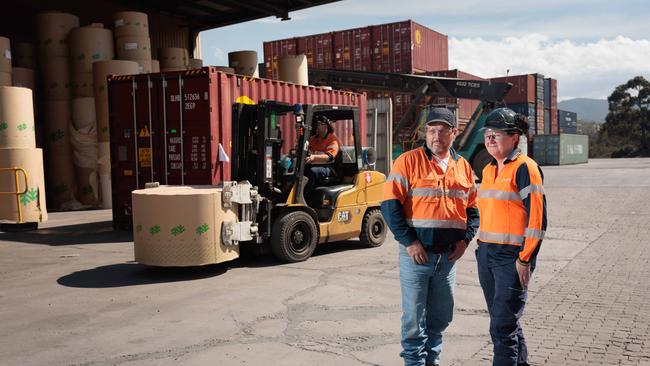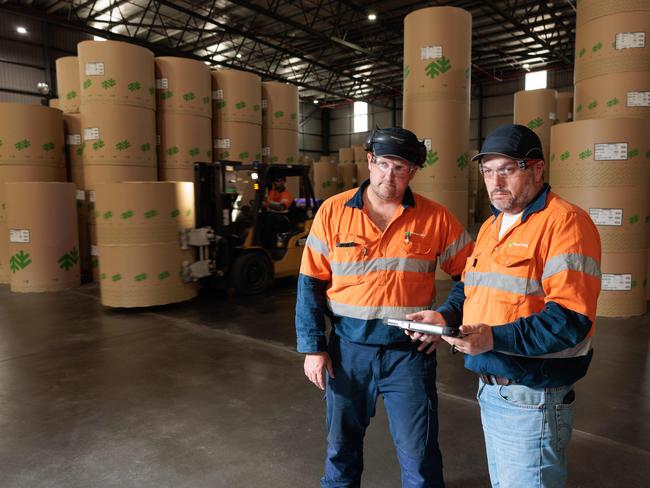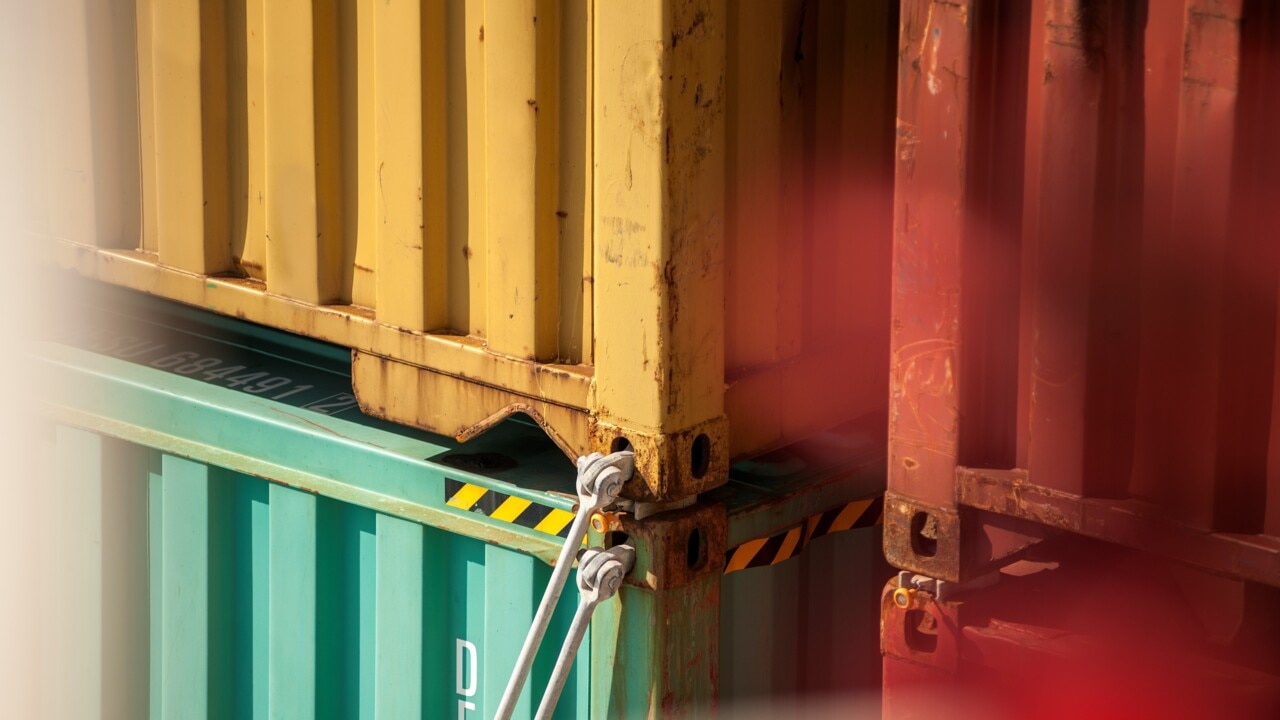Coastal shipping rules and costs sinking our profitability: businesses
Australian industry is being crippled by coastal voyage rules Anthony Albanese originally devised to prop up the country’s faltering domestic shipping sector, businesses have warned.

Australian industry is being crippled by coastal voyage rules Anthony Albanese originally devised to prop up the country’s faltering domestic shipping sector, businesses have warned.
They say cabotage charges, applied by international cargo companies to cover legislated higher rates of pay as they move between domestic ports, have raised transport costs, increasing the reliance on road and rail freight and hurting the competitiveness of Australian manufacturers.
In some cases, moving freight from one Australian state to another can be only marginally more expensive than sending a product overseas and back again on the same ship.
It has led to calls for reform of coastal shipping rules and changes to the Coastal Trading Act to help make it more economical to move goods interstate.
But the Albanese government, which has already started a review of the legislation, has flagged its intent to increase protectionist measures to strengthen the nation’s strategic fleet to boost “economic sovereignty” and “national security”.
Tasmanian paper miller Norske Skog, the country’s last remaining newsprint producer, which supplied News Corp, publisher of The Australian, and Nine newspapers, is among the businesses struggling to compete with foreign importers that can cheaply send their products aboard international liners.
“It would cost us 86 per cent more to send our paper from Melbourne to Brisbane than it does to send it from Melbourne to China,” Norske Skog’s sales, marketing and logistics manager, Michael Heinecke, said. “It’s 76 per cent more to go to Sydney than to China. It’s nearly at the point you could send it to New Zealand and back to Sydney cheaper than Melbourne to Sydney.
“We’ve actually looked at sending paper to Auckland, taking it off the ship for a day (to meet regulation requirements) and then putting it back on the ship and bringing it back to Australia.”
The shipping company’s costs of complying with the legislation is billed to businesses as a “coastal shipping surcharge”, which significantly increases the cost of transport.
Meanwhile, the mill’s competitors export paper to Australian ports at a fraction of the price.
“We are absolutely at a disadvantage being domestic,” Mr Heinecke said. “It’s crazy.”

Norske’s Boyer Mill warehouse manager Nigel Hay said the cabotage laws were hurting local firms while benefiting international competitors.
“It would be great to see us given a more even playing field versus our competitors importing into Australia,” he said.
Introduced by then transport minister Anthony Albanese in 2012 in a bid to revitalise the Australian shipping industry, the cabotage laws require foreign vessel owners to acquire a temporary licence from the government and pay “top-up” wages to their crews when picking up cargo at one Australian port and taking it to another.
It is intended to ensure the competitiveness of Australian shipping companies paying higher local wages. But the Australian fleet has continued to fall since the legislation was introduced.
Australia’s shipping fleet fell from 55 registered major trading ships in 1996 to 21 in 2011 and has since dropped further to nine.
The Prime Minister has been a fierce advocate of cabotage laws, saying they protect Australian jobs and economic sovereignty.
The Albanese government in August announced a review of shipping legislation which would look at coastal trading regulations.
It followed a proposal by the Independent Taskforce on the Strategic Fleet to fulfil Mr Albanese’s election promise to develop a national strategic shipping fleet reserve of 12 domestically registered, owned and crewed vessels.
Transport, Infrastructure and Regional Development Minister Catherine King said the review would ensure legislation supported the long-term sustainability of Australia’s shipping industry and strategic fleet.
The strategic fleet taskforce acknowledged the cabotage laws had created “inefficiencies” and unnecessarily increased costs. But it recommended stronger cabotage laws to strengthen the domestic fleet.
Last month Ms King said the government would increase “the transparency of temporary coastal trading licensing decisions” in a bid to support “a viable domestic shipping industry”.
The government said the transparency measures would include “greater detail” on delegate decisions to award temporary licenses to foreign vessels, the number of temporary licences granted and the type of cargo they carried.
“This information will assist stakeholders to respond to temporary licence applications, informing decision makers about the impact on a business or service offering of granting a temporary coastal trading licence,” a government statement said.
The previous Coalition government tried to reform the shipping industry but its legislation lapsed in the Senate after the 2019 election. At the time, deputy prime minister Michael McCormack said the government wanted to achieve balanced reform that protected Australian shipping without being an unnecessary burden on the movement of cargo from one Australian port to another.
Lobby group Shipping Australia, which represents international liners, said the Coastal Trading Act was “not fit for purpose” and should be scrapped.
“We have observed that the act and the regime has not met its policy goals and has been detrimental to Australian commercial interests, especially and including the interest of Australian business. You can’t successfully dictate into existence a commercial market. The iron laws of economics will not be denied. Ultimately, the market decides whether these policies work or not.”

Angela Gillham, the chief executive of Maritime Industry Australia Ltd, the peak body for the domestic maritime sector, said the act should not be reformed and that Australian shipping should be “afforded the same fiscal incentives as their foreign counterparts to be able to compete”.
“MIAL would not accept deregulation of the access to domestic cargo and the long-term strategic view that is concerned with Australia’s national interest would support this position,” she said.
“The truth is, almost all coastal trading is done by foreign-flagged ships operating under temporary licence.”
Ms Gillham said the small number of Australian vessels, mostly operating across Bass Strait and remote and regional Australia, meant foreign-flagged ships had “virtually unfettered access to Australian cargo”.
“To sacrifice what remains of the Australian industry because of a misapprehension that the CTA is preventing businesses from using cheap shipping would be incredibly short-sighted and is not in the long-term national interest,” she said.
The Maritime Union of Australia acknowledged the Coastal Trading Act was not serving its purpose and needed to be reconsidered, but advocated for stronger cabotage rules put forward by the Strategic Fleet Taskforce, including a recommendation that foreign vessels awarded a temporary licence did not undermine cargo volume for domestic ships.
The union has accused international liners of poor pay and conditions for their workers, enabling them to distort the market and make it uncompetitive for Australian ships.
David Goodwin, owner of Interport Cargo, a Brisbane-based port logistics landside operator, described the cabotage laws as a “self-imposed limitation” that increased the costs of doing business in Australia and overseas.
Mr Goodwin, a member of the LNP, said it was “remiss of all sides of parliament” that the issue had not been dealt with sooner.
“It would be the simplest thing to drive carbon emissions down and make Australia a more attractive shipping destination for more international ships, driving down the cost of doing business by bringing ships in and exporting to the world,” he said
“We are vulnerable to international shipping treating us as an afterthought, and more shipping business for them increases the attractiveness of Australia as a destination.”






To join the conversation, please log in. Don't have an account? Register
Join the conversation, you are commenting as Logout